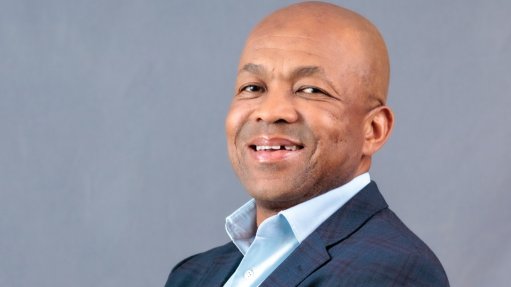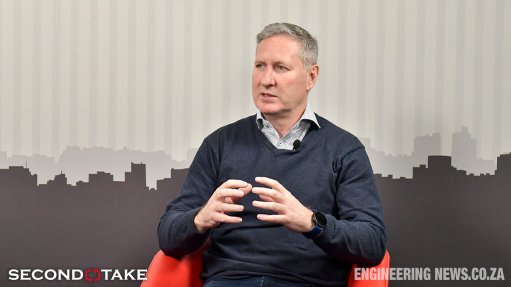The rise of the tech-savvy finance executive in group reporting and planning
This article has been supplied and will be available for a limited time only on this website.
Finance teams in South Africa’s large and growing businesses are juggling more moving parts than ever. From managing results across multiple entities to keeping track of currency shifts and different reporting rules, they are certainly feeling the pressure to deliver fast, accurate insights that leadership can act on. While spreadsheets and manual workarounds have worked in the past, in a time when finance processes and systems have taken on a more digital and technology-led nature, traditional methods serve to slow things down and increase the risk of mistakes when the stakes are high.
Research shows that only 6% of companies believe their budgeting process delivers significant value, a clear sign that traditional planning cycles are falling short. Annual budgets are often outdated within weeks and too rigid to keep pace with shifting priorities, which is why many finance leaders are moving toward rolling forecasts and continuous planning. But to do that effectively, they need tools that can handle complexity without slowing the process down.
For this reason, the new finance leader is expected to make decisions with up-to-date data rather than historical snapshots, and this requires a different mindset as well as toolset.
Group finance is now a data and tech environment
Alwyn Pretorius, GM of Infinitus Reporting Solutions, creators of Finnivo®, says the typical skillset of financial professionals is rapidly shifting, and manual interventions are no longer a competitive advantage in the space.
“Having financial acumen backed up by Excel skills and qualifications is just not enough anymore,” says Pretorius. “Finance leaders now want to employ people who can understand and maintain the systems used to manage and automate group reporting and planning. Whether it's ERP environments or consolidation tools, the ability to navigate through tech, or better yet, deploy the right tech, is now essential.”
This doesn’t mean finance teams need to become software developers. But they do need to operate in data-led, database-driven environments that are significantly more complex than legacy spreadsheets. And in many cases, finance leaders are expected to be both business partners and systems thinkers who can interpret financial data in real time and feed it into rolling forecasts and planning models that shift as market conditions do.
Rolling forecasts, not more headcount
With agility being a requirement for finance teams and organisations today, very few finance departments have the people or time to keep pace with real-time planning and forecasting demands. This, says Pretorius, is where the right system design and support structure plays a critical role.
“One of the biggest mismatches I see in group finance functions is the gap between finance expertise and system capability,” says Pretorius. “A lot of teams want the benefits of real-time consolidation, but their tools can’t support it or they don’t have the in-house expertise to implement those systems properly.”
What’s more, the implementation process itself is often what derails transformation efforts. Many software implementation projects are executed by systems orientated teams with insufficient financial acumen and who lack the understanding of certain finance fundamentals, which leads to delays, poor configuration and costly rework.
“What’s working well for our clients is having implementation and support led by a team of finance professionals,” he explains. “It makes a huge difference when the person implementing and supporting the software understands how to apply tech to manage core reporting outputs such as intercompany recons, equity accounting, scenario setting and tax computation in a multi-currency environment”
For finance teams dealing with complex structures and constant change, the ability to work efficiently with the right systems is fast becoming a non-negotiable. This is because, when implementation is handled by professionals who understand both the technical and financial requirements, the result is faster reporting, fewer errors and more responsive planning without needing to grow the team.
Comments
Press Office
Announcements
What's On
Subscribe to improve your user experience...
Option 1 (equivalent of R125 a month):
Receive a weekly copy of Creamer Media's Engineering News & Mining Weekly magazine
(print copy for those in South Africa and e-magazine for those outside of South Africa)
Receive daily email newsletters
Access to full search results
Access archive of magazine back copies
Access to Projects in Progress
Access to ONE Research Report of your choice in PDF format
Option 2 (equivalent of R375 a month):
All benefits from Option 1
PLUS
Access to Creamer Media's Research Channel Africa for ALL Research Reports, in PDF format, on various industrial and mining sectors
including Electricity; Water; Energy Transition; Hydrogen; Roads, Rail and Ports; Coal; Gold; Platinum; Battery Metals; etc.
Already a subscriber?
Forgotten your password?
Receive weekly copy of Creamer Media's Engineering News & Mining Weekly magazine (print copy for those in South Africa and e-magazine for those outside of South Africa)
➕
Recieve daily email newsletters
➕
Access to full search results
➕
Access archive of magazine back copies
➕
Access to Projects in Progress
➕
Access to ONE Research Report of your choice in PDF format
RESEARCH CHANNEL AFRICA
R4500 (equivalent of R375 a month)
SUBSCRIBEAll benefits from Option 1
➕
Access to Creamer Media's Research Channel Africa for ALL Research Reports on various industrial and mining sectors, in PDF format, including on:
Electricity
➕
Water
➕
Energy Transition
➕
Hydrogen
➕
Roads, Rail and Ports
➕
Coal
➕
Gold
➕
Platinum
➕
Battery Metals
➕
etc.
Receive all benefits from Option 1 or Option 2 delivered to numerous people at your company
➕
Multiple User names and Passwords for simultaneous log-ins
➕
Intranet integration access to all in your organisation





















